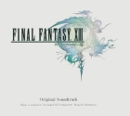
|
|
Mitsuhiro Kaneda :: Biography
| Overview | Biography | Discography | Game Projects | Interviews |
Note: This biography was written exclusively for Square Enix Music Online by Chris. The act of using it without advance written permission is regarded as a copyright infringement. It was last updated on August 27, 2008.
Born in Tokyo on April 29, 1974, versatile and meticulous Basiscape employee Mitsuhiro Kaneda is anticipated to become one of the leading musicians in the gaming industry. A pianist who has been extensively educated in the field of composition, Kaneda studied at both the Tokyo Institute of Technology and the Institute of Advanced Media Arts and Science. Here, he gained versatility with a variety of musical styles, becoming competent at creating jazz, electronic, orchestral, and piano music. While still a student at the colleges, he utilised his technical expertise to participate in a concert by Japanese stars Toshio Iwai and Ryuichi Sakamoto as a programmer. At the same time, he begun to aspire towards programming and composing for the visual arts sector. After completing his studies in 1999, joined game company Opus Studio. His earliest work was programming Soichi Terada's laid-back synth-jazz score to Fantavision in 2000 and mastering its soundtrack release. He enhanced the dynamism of Wave Rally the following year in another programming role and, in 2002, received his first opportunity to publish a composition with the Xbox's Fishing Live Online. Despite meticulously composing, programming, and designing sound effects for the title, it was cancelled prior to its release; nevertheless, he performed the same duties on 2004's related title Pro Fishing Challenge offering some compensation for the blow. Later that year, he created his final work for Opus by composing and programming the sound driver for Red Ninja: End of Honor, extensively using Asian instruments.
In the latter half of 2004, Mitsuhiro Kaneda joined the video game music production company Basiscape. Founded two years earlier by Hitoshi Sakimoto, Masaharu Iwata, and Manabu Namiki, Kaneda was the first of its new employees and was employed to increase its productivity and stylistic range. As the co-composer of Fullmetal Alchemist: Dream Carnival and Battle B-Daman, Kaneda fulfilled Sakimoto's initial expectations but received little popular exposure. On the Stella Deus BGM ReArrange Album, Kaneda greeted Basiscape's fanbase with two contrasting and well-received piano arrangements of Sakimoto and Iwata's work, "Light Atlas" and "Planet She". Once settled, Kaneda engaged in regular collaborations with Manabu Namiki. The pair were consistent forces in the PSP's Japan-only BLEACH Heat the Soul series. These fighting games are known for blending hard rock music with oriental influences in a way that complements the dynamism of the gameplay and the distinctive style of their visuals. In multi-composer efforts, Kaneda was a significant contributor to the rock-oriented fighter scores to the GameCube's Zoids: Full Metal Crash and Battle Stadium D.O.N. Around the time, he contributed arrangements to Hyper Street Fighter II Remix Tracks and Death Meta -Book of Music-, fusing jazz influences with other styles to create unique timbres; in the former's "Cammy Stage", for instance, he utilised heavy electronic beats, jazzy piano harmonies, and a violin melody all at the same time.
On 2005's Wizardry Gaiden: Prisoners of the Battles, Kaneda received his first opportunity to take a large role in a project that would receive a soundtrack release. His nine compositions formed the creative core of a soundtrack otherwise scored by Iwata, demonstrating incredible stylistic breadth and a sound understanding of how instruments can be used individually and collectively. At Namiki's request, Kaneda scored an upbeat and melodic jazz-trance fusion track for Cave's shooter ESPGaluda II. On 2006's Metal Slug 6, Kaneda assisted Namiki once more by offering three boss themes, the fourth stage theme, and two ending themes largely using a mostly orchestral palette; on the Metal Slug Complete Sound Box, Kaneda also offered a bonus remix of some of the series' most memorable themes. Also in 2006, he contributed abstract jazz arrangements for the Pink Sweets Ibara and Mushihimesama albums. The subsequent year, he created a few compositions for Grim Grimoire and helped to arrange a minimally selection of Final Fantasy XII's pieces for the DS' Final Fantasy XII Revenant Wings. He took increasingly large roles on the the second, third, and fourth installments of the BLEACH Heat the Soul series released between 2005 to 2007 to compensate for Namiki's smaller contributions. At Extra: Hyper Game Music Event 2007, he commemorated his role on the series by DJing using a selection of its his most well-known compositions to enthusiastic audiences.
In 2007, Kaneda has had roles in a mixture of other collaborative Basiscape projects. For Vanillaware's action RPG Odin Sphere, he assisted in the areas of sound effects design and composed five emotional tracks, sometimes demonstrating a flair for cinematic underscoring. For Final Fantasy Tactics A2: Grimoire of the Rift, Kaneda both arranged a selection of Ivalice Alliance pieces to increase the diversity of the score and created a single composition. For the DS children's book adaptation Deltora Quest: The Seven Jewels, Kaneda created the majority of the stage and battle themes. By unconventionally blending organic instruments and focusing more on rhythms, articulation, and timbral contrast, he created a whimsical and percussive sound that complemented the game's scenarios and fascinated on a stand-alone level. For the Wii's Opoona, he blended orchestral and synthetic sounds in a series of warm and subtle compositions and arrangements, impressing performers of the Eminence Symphony Orchestra with his intricate woodwind solos. He further demonstrated his flexibility taking leading roles on Elminage, richly and innovatively combining instruments to achieve a Celtic focus, and Coded Soul, contributing to an atmospheric genre-hopping science-fiction score. His latest game works were the visual novel game L no Kisetsu 2: Invisible Memories, where he contributed a mixture of character themes, vocal arrangements, and tension themes, and the zoo-raising simulation Kumatanchi, where he presented light sentimental twists on his characteristic musicality.

